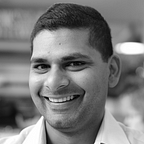The Madiba Magic Number Project
Mapping the legacy of the late Nelson Mandela
The late former South African president Nelson Mandela was a remarkable statesman, leader and person. It’s hard to put into words the affection that is felt for Madiba (isiXhosa for “father”) amongst South Africans.
Yes, Madiba the politician negotiated the end of Apartheid, a devastating racial segregation policy that caused immense pain. He did it with a message of peace, cooperation and reconciliation that is a farcry from today’s divisive right political landscape. All this after being jailed for 27 years as a terrorist. He had a different message: We don’t get even, we build bridges and we open our hearts. We lead from our ethics, and with principle.
In 2020, nearly 27 years on from the first democratic South African elections, there is a different atmosphere in the country. The past 10 years has seen the cronyism and corruption of the Zuma government: Extensive issues of state capture, a lack of economic empowerment, and a failure to build the democracy that Madiba envisioned. This is what it is, and it won’t get better until it’s accepted and integrated as a lesson for us all, but there is a hidden legacy that Madiba left behind in the way that he touched the lives of ordinary South Africans.
Here is an example, and the origin of this story. A couple of weeks ago I met a car guard (someone who watches your car in a public parking lot, so that it doesn’t get broken into — we actually have people that do this in South Africa) who carried an unusual duffel bag. I recognised it as South African army issue — I have a friend who was in the army that still had his bag from the 1990s. So I started talking to him about this particular bag, and he said very proudly that he was once in the police, and that before the CODESA talks (which ended apartheid) he was detailed to bodyguard Nelson Mandela.
As he told the story he lit up, straightened up, and went back to a memory that he was obviously very proud of and that had opened him up in a significant way. Most car guards have very rough lives, earning very little, and living on the streets, but there was something heartening for this man as he told the story and remembered his experience.
“I chose this life,” said the car guard, “but I was also someone else. I can still help people.”
Madiba did that to people with his beingness. In his life, he was a beacon for others on how to relate to the world with heart centered authority, carrying a personal choice to rise above oppression with nobility, and a commitment to service. I’d like to believe that he awakened this potential for leadership in the people around him, but I have never met him.
But, I know people who have, and they all have amazing stories to tell, both about meeting Madiba and about their own lives. My mother who has trained thousands of nurses in her lifetime. A friend that was a waiter at a state function in Pretoria and started an education program. A professor who met Madiba at a luncheon and introduced the poltics-philosophy-economics degree into the South African university curriculum, and then two of his kids have PhDs while the other is a director at Amazon.
And, this I think is Madiba’s hidden legacy — the lives of ordinary people that he left an impression on, who in turn have had an impact on the world for the good in whichever small way.
So, this little historical data science project, called the Madiba Magic Map is an attempt to replicate the Erdos number idea from graph theory (or the Kevin Bacon movie idea) by assigning a “Madiba Magic Number” to those people that have met Nelson Mandela while he was alive, and those people that know those people and so forth. If you personally met Madiba, then your number is 1, if you met someone who has met him, then 2, if you met someone who’s met someone who has met him then 3. My guess is that most South African’s have numbers less than 3, and that if you dig hard enough, you’ll probably find that you know someone, somewhere, that you know who has met Madiba.
Another way to view it is that Madiba was the original impactor, and he connected with a lot of other impactors, that have had their own impact on the world in the last 30 years. (Yes, I could have used the word influencer instead of impactor, but influencer is a relatively cheap term these days.)
Anway, I’ll build a network map as this article propagates and people contact me via LinkedIn. The most efficient way to help with the project is to fill out this GoogleForm which is being used to capture the data until we can find a funder to help setup a portal/digital installation with first hand stories and other interesting tidbits.
Thanks! And thanks to those of you that have left your stories already.
About Me. I’m a mathematician/data scientist involved in the modelling and development of alternative economic systems, economic design and governance. If you need me, then you can find me on LinkedIn.
